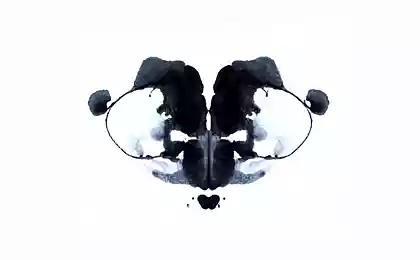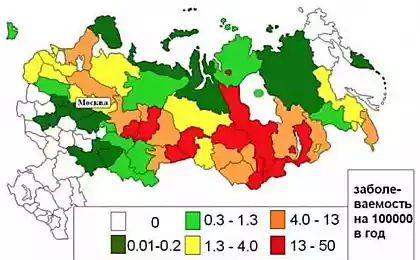592
Is it possible to measure human intelligence by using IQ tests?
Eighty nine million nine hundred seventy thousand five hundred forty one
Intelligence in everyday consciousness — the mind. People with high intelligence is a smart man. Accordingly, the IQ tests is actually tests that aimed to establish to what extent an intelligent man, that is smart.
If we turn to a more scientific definition, intelligence is the ability to solve problems that are associated with the construction of models of external objects. In order to, for example, to solve the problem: "there Were two birds, flew in two more. How much was it?" — we must create a mental model of the situation inside this model to make a conclusion.
Intelligence is the ability to carry out such operations with the models, or, more precisely, representations of problem situations.
Tests for intelligence, there are many. Allocated for, for example, fluid and crystallized intelligence. Fluid, or fluid, is the intelligence that is associated with the analysis of new situations that people have faced for the first time. In contrast, crystallized intelligence is intelligence that has crystallisable knowledge, that is, where we are dealing with previously encountered in human experience.
Accordingly, tests on fluid intelligence tests are related in order to identify patterns in some locations — for example, in the number of figures or any other geometric shapes. Often it is necessary to establish a pattern and on the basis of this pattern, for example, to continue the series.
Tests of crystallized intelligence tests are associated with awareness, with what one knows. For example, with a subtle understanding of the meanings of words.
It is possible to allocate intelligence verbal, that is based on verbal material and intelligence numerical, or spatial intelligence, which is associated with different abilities to handle spatial figures.
All ranges of intelligence are correlated among themselves. As a result of these correlations is released that professional psychological language is called the General factor of intelligence, or General intelligence.
John. Carroll has created a large taxonomy of intelligence. Allocated 69 primary intellectual abilities, and each of these abilities there is more than one test. Therefore, varieties of intelligence tests very much.
As for the IQ tests, in a professional environment such concept does not exist in principle. IQ is a method of numerical evaluation of intelligence, which is related to the fact that the average is taken over one hundred and a standard deviation of 15.
So IQ is not a specific test of intelligence, and is a method of numerical evaluation of the results of the test of intelligence.
Not to say that there is one of the most common intelligence test. There are commercial products that you can take and use for the diagnosis of intelligence with some specific objectives. But these tests are created from different combinations of scales. They may include single species tests, there is one task, and there are tests that include many subtests, and they will be different types of tasks. Integral tests that include different types of tasks are more adequate and more comprehensive. Although they are more difficult to conduct, but they give a fuller, more adequate picture.
These tests recruited from the same clear set of possible subtests. There are "crafty" options, when specific tasks are given depending on the previous answers of the test. Accordingly, people who are better, i.e. have a higher current rating of intelligence, you get more complex tasks which are more informative regarding the determination of their level of intelligence.
Creating the intelligence test — it is a complex art specific and special case.
How accurately through tests to determine the level of intelligence depends on the kind of test that we use. Basically, if you take two tests that measure General factors of intelligence (full of different intelligence tests conducted on a sample of people, and each of them reveals the General factor), the correlation between this identified the General factor may exceed 0.9, that is, the accuracy is very high. published
Author: Dmitry Ushakov, doctor of psychological Sciences, corresponding member of RAS, head of laboratory of psychology and psychophysiology of creativity, Institute of psychology RAS
P. S. And remember, just changing your mind — together we change the world! ©
Source: postnauka.ru/faq/43338
Intelligence in everyday consciousness — the mind. People with high intelligence is a smart man. Accordingly, the IQ tests is actually tests that aimed to establish to what extent an intelligent man, that is smart.
If we turn to a more scientific definition, intelligence is the ability to solve problems that are associated with the construction of models of external objects. In order to, for example, to solve the problem: "there Were two birds, flew in two more. How much was it?" — we must create a mental model of the situation inside this model to make a conclusion.
Intelligence is the ability to carry out such operations with the models, or, more precisely, representations of problem situations.
Tests for intelligence, there are many. Allocated for, for example, fluid and crystallized intelligence. Fluid, or fluid, is the intelligence that is associated with the analysis of new situations that people have faced for the first time. In contrast, crystallized intelligence is intelligence that has crystallisable knowledge, that is, where we are dealing with previously encountered in human experience.
Accordingly, tests on fluid intelligence tests are related in order to identify patterns in some locations — for example, in the number of figures or any other geometric shapes. Often it is necessary to establish a pattern and on the basis of this pattern, for example, to continue the series.
Tests of crystallized intelligence tests are associated with awareness, with what one knows. For example, with a subtle understanding of the meanings of words.
It is possible to allocate intelligence verbal, that is based on verbal material and intelligence numerical, or spatial intelligence, which is associated with different abilities to handle spatial figures.
All ranges of intelligence are correlated among themselves. As a result of these correlations is released that professional psychological language is called the General factor of intelligence, or General intelligence.
John. Carroll has created a large taxonomy of intelligence. Allocated 69 primary intellectual abilities, and each of these abilities there is more than one test. Therefore, varieties of intelligence tests very much.
As for the IQ tests, in a professional environment such concept does not exist in principle. IQ is a method of numerical evaluation of intelligence, which is related to the fact that the average is taken over one hundred and a standard deviation of 15.
So IQ is not a specific test of intelligence, and is a method of numerical evaluation of the results of the test of intelligence.
Not to say that there is one of the most common intelligence test. There are commercial products that you can take and use for the diagnosis of intelligence with some specific objectives. But these tests are created from different combinations of scales. They may include single species tests, there is one task, and there are tests that include many subtests, and they will be different types of tasks. Integral tests that include different types of tasks are more adequate and more comprehensive. Although they are more difficult to conduct, but they give a fuller, more adequate picture.
These tests recruited from the same clear set of possible subtests. There are "crafty" options, when specific tasks are given depending on the previous answers of the test. Accordingly, people who are better, i.e. have a higher current rating of intelligence, you get more complex tasks which are more informative regarding the determination of their level of intelligence.
Creating the intelligence test — it is a complex art specific and special case.
How accurately through tests to determine the level of intelligence depends on the kind of test that we use. Basically, if you take two tests that measure General factors of intelligence (full of different intelligence tests conducted on a sample of people, and each of them reveals the General factor), the correlation between this identified the General factor may exceed 0.9, that is, the accuracy is very high. published
Author: Dmitry Ushakov, doctor of psychological Sciences, corresponding member of RAS, head of laboratory of psychology and psychophysiology of creativity, Institute of psychology RAS
P. S. And remember, just changing your mind — together we change the world! ©
Source: postnauka.ru/faq/43338























